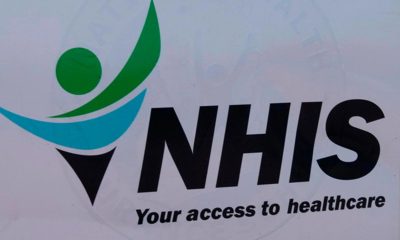Insurance
Health Insurance For Expats In Philippines – Requirements & Options

If you intend to live in the Philippines for an extended period of time, you should be familiar with the country’s healthcare system. As an expat, you’ll benefit from knowing whether you need health insurance, what kinds of health insurance options you have, what is covered by health insurance in the Philippines, and the cost of healthcare and insurance in the country.
If you are visiting the Philippines as a tourist, you need purchase Philippines-specific travel insurance.
How Does the Healthcare System Work in the Philippines?
Philippine healthcare is a mix of commercial and public systems, with the Department of Health running the public system. The government-owned Philippine Health Insurance Corporation (PhilHealth) administers a national insurance scheme for expats and citizens under the Universal Health Care (UHC) system.
Municipal and government funding, company and employee contributions fund public healthcare. Due to its youth, the healthcare system has some inadequacies.
However, anyone who can afford private treatment and insurance can use them. Though it largely supplements the public scheme.
Do Expats Need Health Insurance in the Philippines?
All expats who are legal residents in the Philippines must enroll in public health insurance through the Philippine Health Insurance Corporation (PhilHealth). This is a legal obligation. Registration can be done in person at any of the local PhilHealth offices or online (provided the online registration system works, as the website is frequently under maintenance).
You can get a free quote and compare different health insurance plans for expats in the Philippines through Insubuy.
You can get a free quote and compare different health insurance plans for expats in the Philippines through International Citizens Insurance.
How Can Expats Obtain Health Insurance in the Philippines?
Expats in the Philippines have two options for health insurance:
- Sign up with the public health insurance scheme (PhilHealth).
- Purchase private expat health insurance.
Public Insurance
PhilHealth manages public health insurance in the Philippines. All expats staying longer than six months must register with PhilHealth. Employers normally register employees, but others must register themselves.
Employed expats have their employers pay social contributions (a percentage is deducted from their paycheck). Applicants must contribute to the system themselves for voluntary registration.
How Can Expats Register for PhilHealth?
You can (voluntarily) register for PhilHealth by following the steps below
- Check eligibility – Only expats who possess a long-term visa are eligible to enroll with PhilHealth. This includes work visa holders, a Special Resident Retiree’s Visa (SRRV), or a 13A Visa.
- Prepare your documents – To complete the registration process, you must prepare a PhilHealth membership form, a copy of your ID, a copy of your passport, proof of residency, and proof you hold a visa in the Philippines.
- Submit your application – You can submit your application at any local office of PhilHealth in your area, which you can find here.
- Pay your contributions – Since you are registering on your own, you must make sure you pay the required contributions to be a member of PhilHealth. These contributions are calculated based on your income (see below).
- Retrieve your PhilHealth ID – Once registered, you will receive a PhilHealth ID which shows your right to enroll in the national insurance scheme in the Philippines and receive care.
Private Insurance
Because the bulk of the Filipino population speaks English rather well, expats do not need to seek out private healthcare in order to find an English-speaking doctor. They do, however, prefer to have a private insurance policy to fill the holes left by the public healthcare system. It also provides them with certain extra perks, such as access to private hospitals with shorter wait times and enhanced medical equipment.
Expats have two alternatives for private insurance:
- Purchase from an international insurance company – Expat insurance businesses are specifically established to provide insurance to expatriates, making it easier to identify a provider with a suitable policy. Insurance is typically purchased online or over the phone. One of the most important advantages of expat insurance is that it provides coverage in countries other than the Philippines.
- Purchase from a local insurance company – Expats also have the option to purchase a policy from a local private insurance company. Usually, for this kind of insurance, you must buy the policy after entering the Philippines, and the coverage area is limited to the country only.
If you decide to get foreign health insurance, it is always a good idea to consult with a comparison marketplace like Insubuy or foreign Citizens Insurance to assist you choose your policy. You will find a comparison of many insurance providers, as well as their finest policies, where you can see the benefits and costs.
How Much Does Health Insurance Cost in the Philippines?
Based on your income, you have to pay for public health insurance in the Philippines as follows:
Income range
- Up to P10,000 (approx. $184)
- P10,000 to P89,000 (approx. $184— approx. $1,637)
- P90,000 (approx.$1,656) and above
Monthly contributions
- P450 (approx. $8)
- P450 to 4,050 (approx. $8— approx. $74)
- P4,050 (approx. $74)
PhilHealth’s 2023 premium rate is 4% and will remain such. Employers pay half of the contribution, while employees pay half from their salaries. Self-employed expats pay their own contributions.
However, private health insurance premiums vary widely by age, provider, coverage area, and validity term. Private insurance in the Philippines costs $100–300 per month for expats.
Best Health Insurance Companies for Expats in the Philippines
For private insurance, you can find some of the best expat insurance companies listed here:
International insurance companies:
- AXA Philippines.
- Aetna.
- Cigna Global.
- Pacific Cross.
Local health insurance companies:
- Philcare.
- Medicard Philippine.
To help you select the best provider, you use Insubuy as a guide on different providers that offer various policies. This way, you will choose the most convenient plan for you during your stay in the Philippines.
For public health insurance, you must sign up with PhilHealth (a government-operated company).
What Is Covered by Expat Health Insurance in the Philippines?
Public health insurance under PhilHealth offers coverage for the following areas:
- In-patient coverage – This covers any service you may require while you are hospitalized for any medical condition in the Philippines.
- Out-patient coverage – Out-patient benefits include medical services such as tests, diagnoses, and check-ups that don’t require hospitalization.
- Emergency services – This option provides coverage for any emergency visits in the Philippines.
Other benefits, like as the Z package (covering for patients suffering from particular ailments such as cancer, heart disease, and liver disease), may be unavailable to expats. This is dependent on your employment, so consult with your boss and the nearest PhilHealth office.
Private health insurance allows you to choose specific benefits such as dental and vision care, as well as alter the level of coverage based on your needs.
Does the Philippines Have Universal Healthcare?
The Philippines has a universal healthcare system, although it is still evolving, thus some residents do not have access.
The Philippines signed the Universal Healthcare Act in 2019 to overhaul healthcare. The Universal Healthcare Act expands healthcare services, access, and funding. Universal healthcare for all Filipinos is expected in the next years.
What Is the Difference Between Public and Private Health Insurance in the Philippines?
There are several notable differences between private and public health insurance in the Philippines, as listed below:
Public health insurance
- It’s mandatory for all Filipinos and expats working in the country.
- Public health facilities are more widely spread in the Philippines. They are easier to access.
- Basic healthcare coverage and specific areas depending on the employment and eligibility criteria.
- It’s generally much cheaper, and contributions are usually paid half by the patient and half by the employer.
- It generally has a lower quality of care, a lack of medical equipment, and a longer waiting time.
Private health insurance
- It’s voluntary; you can purchase it independently or via your employer.
- Private facilities are mainly focused in urban areas and rural zones lack access to private hospitals.
- More flexible coverage areas, can be adjusted according to the needs of the policyholder.
- It’s usually more expensive, and all premium costs are covered by the policyholder.
- Generally has access to better medical facilities and fewer waiting times.






















